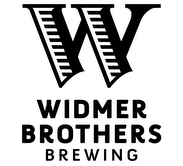
Brothers Kurt and Rob Widmer, the co-founders of Portland’s Widmer Brothers Brewing, took to the social networking service yesterday to host an AMA, shorthand for “Ask Me Anything,” in which they answered questions posted by beer drinkers on a swath of topics. While their answers were terse in comparison to those from Brooklyn Brewery’s Steve Hindy, who hosted a session of his own in April, the pair did touch on a couple of top of mind issues.
For starters, as Widmer is part of Craft Brew Alliance, which is 32 percent owned by Anheuser-Busch InBev, it doesn’t fit the Brewers Association’s accepted definition of craft. Some view this exclusion as just while others find the distinction arbitrary. As such, it was no surprise to see the following question posed:
“How would you respond to people that vilify craft brewers who enter into partnerships with SABMiller and InBev?”
Answer: “The quality of our beer actually improved with the distribution agreement with AB. We talk about vilifiers as flat-earthers.”
Beyond likening disparagers of Widmer’s position beneath the AB umbrella to the bygone believers of a flat earth, the pair also expressed their belief that smaller is not always better.
When asked if they thought microbreweries generally produced better quality beers than some of their larger, domestic counterparts, the Widmer’s said that while products from BA-defined craft brewers might be “[m]ore flavorful,” they aren’t always “better quality.”
Reddit might be the “front page of the internet,” but it wasn’t the only website playing host to a craft vs. crafty debate — NPR tackled the subject again this week. To its credit, the organization did depart from the exhausted familiar narrative, in which the likes of Goose Island and Blue Moon, owned by A-B InBev and MillerCoors respectively, are debased for their not-so-small and not-so-independent ownership. Instead NPR opted to go after the aforementioned BA’s definition of craft.
“[T]he line separating craft brewers from large multinational companies is growing blurrier,” according to the article. “Part of the confusion over what craft beer means has come from within the craft beer community itself.”
The article adds that the BA’s amended definition, which is written now to include the likes of Yuengling and other breweries that make beer with “adjunct” ingredients such as rice or corn, has inspired some derision in the craft community.
“I think the Brewers Association has watered down the meaning of craft beer, and of good beer,” Dan Del Grande, owner of Bison Organic Beer, told NPR.
But for Del Grande, size is the main concern. He believes that breweries producing “about 200,000 barrels of beer per year” should not be considered craft.
“They especially should not be receiving the lobbying and marketing support that the Brewers Association offers to craft breweries,” the article read.
To counter, Julia Herz, the BA’s craft beer program director, said the organization “decided not to penalize the most rapidly growing of our craft brewers for coming of age, for success,” when coming up with its newly revised definition.
Nonetheless, microbreweries and larger companies with national distribution (and perhaps a mammoth parent alike) do have at least one thing in common: they both have to deal with the rising cost of hops in the U.S.
According to CNBC, the price for aroma and specialty hops has doubled in the past five years to “about $7 to $10” per pound,” the highest price point since a severe drought drove the prices up in 2007 and 2008.
“I’ve been buying hops for 30 years,” Steve Dresler, the brewmaster at Sierra Nevada told the website. “It’s more challenging now than just about any time in my career.”
In addition to costing brewers more, the insatiable demand for hops is impacting hop suppliers as well.
“It’s been a struggle for the hop industry to keep up with the new demand,” Sean McGree, hops manager at BSG CraftBrewing, a US supplier of beer ingredients, told the site.
